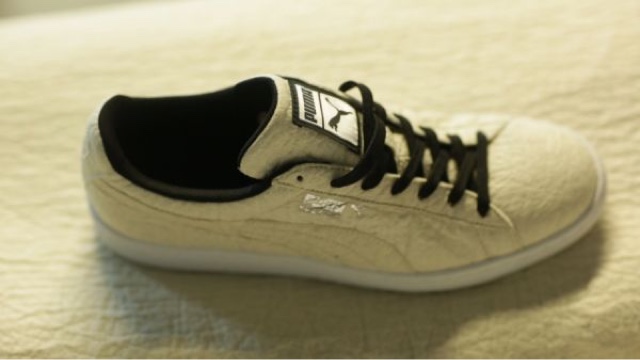Sunday, December 31, 2017
Monday, January 1
Friday, December 29, 2017
Saturday, December 30
Its an album full of hooks, laid down grooves, and downright great songs. Its sure to delight for listen after listen as the layers peel away to reveal surprise after surprise.
Monday, December 25, 2017
Tuesday, December 26
Saturday, December 23, 2017
Sunday, December 24
Monday, December 18, 2017
Tuesday, December 19
Saturday, December 16, 2017
Sunday, December 17
Tuesday, December 12, 2017
Wednesday, December 13
Today is the day I normally drive the bus to Swimming but, to celebrate another successful year, the group decided to go out for lunch instead. We went to the Country Club Casino for their buffet; I was handed an envelope with $30 to thank me for driving. Lunch was only $22.50 so I'm in front.
There were probably 200 in the dining room: 95% over 75 and 85% female. It's the same wherever you go now; there's a mature female-led recovery going on in the catering industry.
The buffet was pretty good but the only hot meat was Roast Turkey and the prawns had spent their recent life in plastic bags packed in Vietnam. Still, there was plenty to enjoy and a good range of desserts.
I've watched two movies this week about Winston Churchill, both made in 2017. I don't know why the interest in Churchill all of a sudden but both movies were worth watching. After reluctantly enjoying John Lithgow playing the great man in The Crown, I was resigned to a couple more caricatures in the latest offerings, but my fears were unfounded. Gary Oldman was a bit shouty in Darkest Hour, and he didn't quite capture Churchill's dour exterior, but Brian Cox really lived the part in Churchill. The only jarring note was the way his Scottish accent slipped through from time to time. Although, when I think of it, Churchill represented the constituency of Dundee for fourteen years so maybe he picked up scraps of the Doric?
Friday, December 8, 2017
Saturday, December 9
The Rev Ian Paul, an Anglican theologian, said the pope’s comments would make traditionalists nervous.
“The word in question is peirasmos [from New Testament Greek] which means both to tempt and to be tested. So on one level the pope has a point. But he’s also stepping into a theological debate about the nature of evil.
“In terms of church culture, people learn this prayer by heart as children. If you tweak the translation, you risk disrupting the pattern of communal prayer. You fiddle with it at your peril.”
The Lord’s Prayer, which is memorised by millions of Christians across the world, appears in the Bible.
I won't be able to stop worrying about this now.
Wednesday, December 6, 2017
Wednesday, December 6
Monday, December 4, 2017
Tuesday, December 5
Sunday, December 3, 2017
Monday, December 4
Wednesday, November 22, 2017
Tuesday, November 21
Monday, November 20
Thursday, November 16, 2017
Friday, November 17
Wednesday, November 15, 2017
Wednesday, November 15 (2)
Tuesday, November 14, 2017
Wednesday, November 15
Tuesday, November 14
Sunday, November 12, 2017
Monday, November 13
Thursday, November 9, 2017
Friday, November 10
Saturday, November 4, 2017
Saturday, November 4
Thursday, November 2, 2017
Friday, November 3
Wednesday, November 1, 2017
Thursday, November 2
Friday, October 27, 2017
Friday, October 27
Tuesday, October 24, 2017
Wednesday, October 25
Monday, October 23, 2017
Tuesday, October 24
Tuesday, September 12, 2017
Tuesday, September 12
Sunday, September 10, 2017
Monday, September 11
Sunday, September 10
Friday, September 1, 2017
Saturday, September 2
Wednesday, August 30, 2017
Thursday, August 31
Sunday, August 27, 2017
Sunday, August 27
Thursday, August 24, 2017
Friday, August 25
Wednesday, August 23, 2017
Thursday, August 24
Wednesday, August 23
Monday, August 21, 2017
Tuesday, August 22
Tuesday, August 8, 2017
Wednesday, August 9
Thursday, August 3, 2017
Thursday, August 3
Wednesday, August 2, 2017
Wednesday, August 2
Saturday, July 29, 2017
Sunday, July 30
'Gilligan said a small group of writers plotted every episode intensely before a writer subsequently penned the script itself.
“It’s a sequestered jury that never ends. We’re sitting around all day talking ad nauseam, talking about minute detail,” he explained.
“The breaking of the episodes is the hardest part and takes the most elbow grease. It probably takes on average 3 weeks to break each episode. Sometimes we’ve gone as many as 5 or 6 weeks."'
In Australlia, that process is only allocated two days at the most. It seems the Australian audience is content to accept second-rate but I wonder how large the potential audience would be if the programs offered were up to scratch.
In the meantime, the 9% of my persona which is British still demands a diet of UK drama. I'd be hopeless in parliament; clearly 91% is not enough to be truly Aussie.













